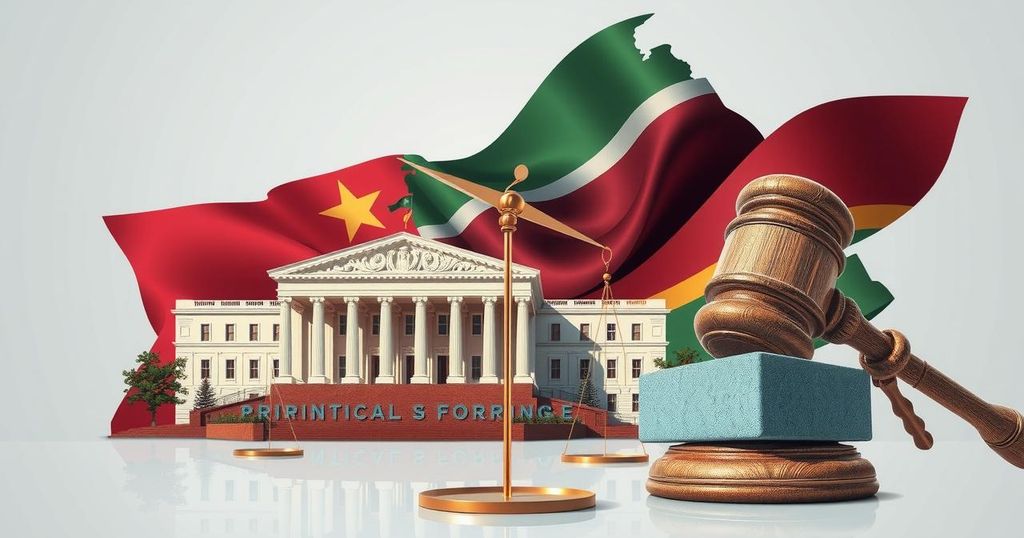President Salva Kiir of South Sudan has sacked two vice-presidents and the head of intelligence amid ongoing political challenges. This move follows a 2018 peace agreement that has struggled to maintain stability in the country. Key figures in the government have been reassigned, raising questions about the future political landscape leading up to postponed elections.
President Salva Kiir of South Sudan has dismissed two vice-presidents, the head of the national intelligence service, and several senior government officials. The restructuring was disclosed through a series of presidential decrees broadcasted by the state media, although no specific reasons were provided for these dismissals. Following a 2018 peace agreement aimed at resolving the civil conflict, South Sudan currently has five vice-presidents.
Among those relieved of their duties is James Wani Igga, a seasoned politician and general, who had been in office since 2013. Igga served as deputy chair of the ruling Sudan People’s Liberation Movement (SPLM). Another vice-president removed is Hussein Abdelbagi Akol, a member of the South Sudan Opposition Alliance (SSOA), who has been reassigned as the minister for agriculture, replacing Josephine Joseph Lagu, who now assumes the vice-presidential role.
Benjamin Bol Mel, previously sanctioned by the United States for alleged corruption, has been appointed to succeed Igga. Mel has held the position of special presidential envoy for special programs and has been speculated as a potential successor to President Kiir. The president has withheld appointments for the minister of health and the governor of Western Equatoria, both affiliated with Riek Machar’s party.
Furthermore, there is no immediate replacement for the recently dismissed spy chief, Akec Tong Aleu, who had a very brief tenure lasting only four months. The power-sharing agreement established in 2018 affords the president significant authority to appoint and dismiss officials; however, any removal involving officials from other parties typically requires the consent of their respective party leaders.
It is unclear whether the governor’s and health minister’s dismissals were advised by Riek Machar, as the SPLM-In Opposition has not issued a public statement regarding this matter. South Sudan has not held elections since its independence in 2011. Initial elections intended for 2015 were delayed due to civil unrest, and subsequent elections planned for 2022 have also been postponed until December 2026.
In summary, President Kiir’s recent dismissal of key government officials indicates a significant shift in South Sudan’s political landscape amid ongoing struggles associated with the peace agreement. The appointments and removals underscore the complexities of governance in a nation still affected by the legacy of civil war.
Original Source: www.bbc.co.uk






